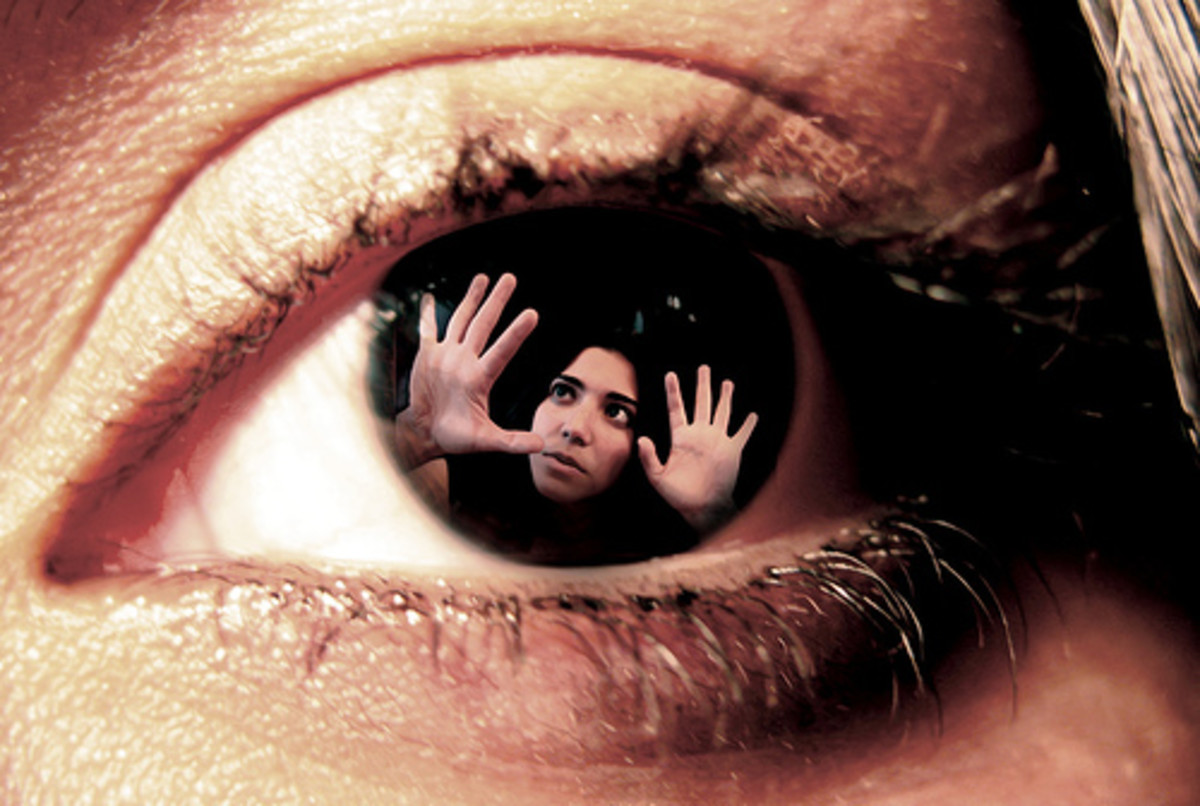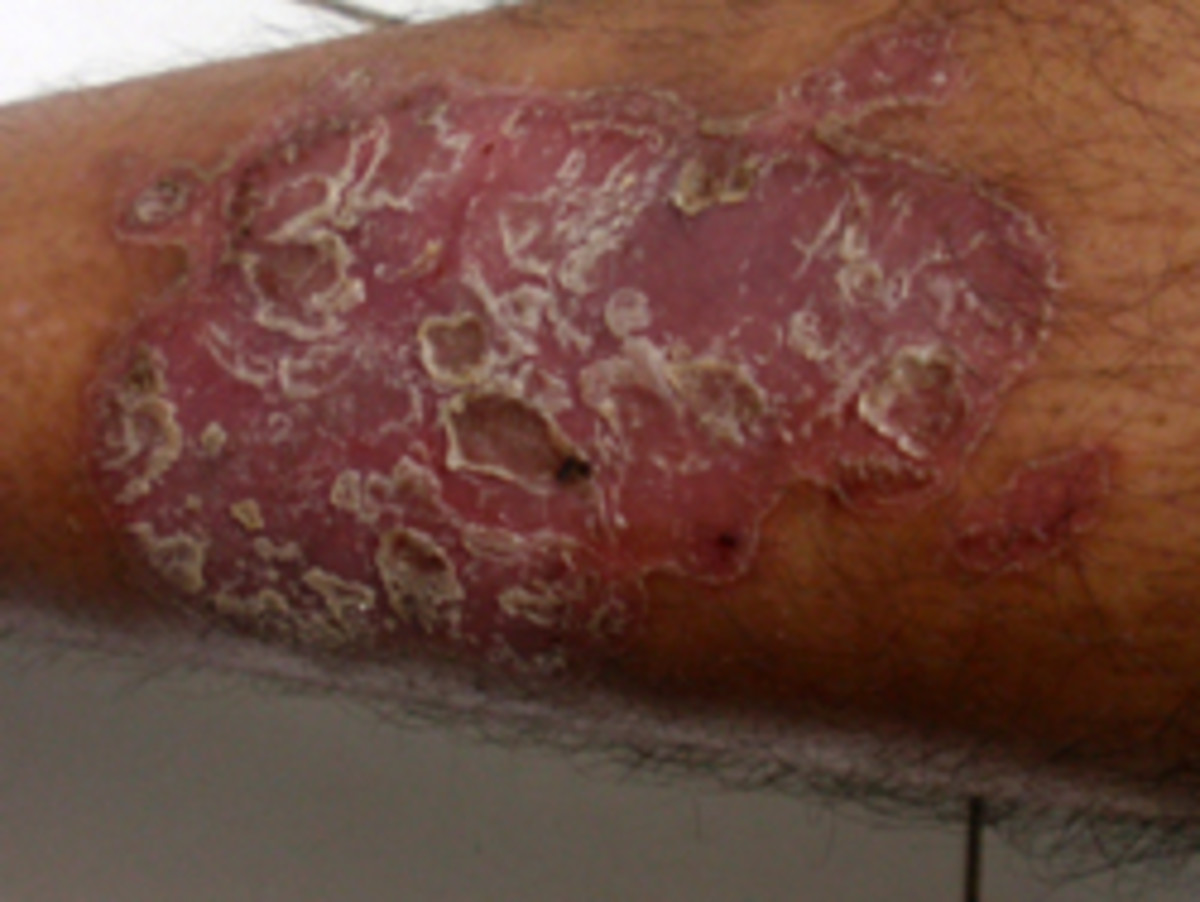PTSD: One family's desire to make things better.

Traveling a Rocky Path
I could not have predicted that my husband at the age of 56 would experience physical and emotional symptoms to such a degree that he would wind up having to leave his job, avoid most public and family events, and totally change his lifestyle to reduce his stress levels to a bare minimum.
*For those reading this,every person and situation is different. The safety of the person suffering with this condition and the family should be the number one concern. The purpose of this article is not to give medical advice. I urge all who think they suffer from some type of post-traumatic stress disorder to consult with a physician who is an expert in this field and to seek support. My husband keeps two crisis phone lines near him at all times, especially for use at night when the rest of us are sleeping. My hope is that my story will help others who live with those who suffer with PTSD to know they are not alone and that there are some things that can be done to adapt your environment to decrease extra stimulation, eliminate stress, and help those with PTSD to feel safe and in some kind of control.
Some history:
My husband and I have been married for 23 years and we have a college age daughter.The first 15 years were not without challenges. My husband was a steady, hard worker, proud of his work and his family. He often shared with me that he did not have a happy childhood due to a volatile and chaotic environment created by his parents which included a father that struggled with PTSD following his military service in the Korean War. As a child, he remembered that he did not feel safe in his own home. My husband is a Viet Nam Veteran who served in the Navy but I know not all with PTSD have served in the military. Ironically, my husband sustained a gunshot wound just a few months after leaving the service when he was enjoying a night out on the town.This caused blindness in one eye. Up to this point he had been exposed to a series of traumatic events both in and out of the military. My husband recalls being "messed up" during this part of his life immediately following the Navy and drank heavily to "numb" himself, but he went on to finish school and pursue his goal of being a Physical Therapy Assistant. His first marriage ended in divorce and by the time we married we both had had some life experience behind us.
There were some issues and behaviors from the very beginning of our marriage that I had no idea were related to PTSD. In hindsight I see now how connected these different events were. I knew from the beginning of our relationship that my husband often experienced symptoms of anxiety and depression and he sought counseling and medication for these issues. He used his sense of humor and ability to tell a good story or joke (and at times alcohol) to feel at ease in social situations. I think that most of the time I attributed most of his more disturbing behaviors to his anxiety and depression with very little thought and awareness as to their possible ties to PTSD. We weren't drawing a connection until his symptoms got much worse and we were educated by medical professionals in tune with PTSD.

Common Symptoms of PTSD
The symptoms that my husband experienced:
Frequent (nightly) nightmares with vocal outbursts and whole body movements like he is acting out his nightmares.
A very sensitive startle reflex
An overactive fight or flight response
Emotional detachment
Loss of interest in activities
Irritability and anger
Substance abuse
Depression and hopelessness
The Beginning of Our Journey
Approximately nine years ago my husband literally started to fall apart. Neither one of us knew what was going on and all of us were scared. His total body response to being startled or when in a noisy environment became more extreme. It was difficult for him to be at work because of the nature of the setting i.e., working with the public, noisy and active children, and heavy paperwork requirements that demanded sustained concentration. There were times he was shaking so severely that he couldn't walk. It also became increasingly frequent that he looked as if he was having seizures following a stressful event. He had to leave work early several days during the week. My husband was in and out of the ER when things were at their worst. We initially took him to a psychiatrist who got him on the right track for care but it was when he got hooked up with a VA healthcare team that he began a medication program that allowed him to break this cycle and at least be able to continue his basic daily activities. He was not able to return to the work he loved in Physical Therapy. The diagnoses given him were; PTSD, anxiety disorder, panic disorder, depression, and complex motor tics. At this point we are fortunate that he has not been or become suicidal and this is in part due to his counseling and medication program.
Working Things Out
Each person has their own level of tolerance for how much they put up with in any situation. Most of us have learned that marriage takes work and when someone has a severe disability it demands exhausting levels of work. My decision to stick it out and stay by my husband's side comes from love and the idea that I would want someone by my side if this happened to me. All circumstances are different, and things change. Sometimes things get better and sometimes worse. It's up to each individual to decide when and how long they will stay in a relationship that is difficult or possibly unsafe and this is also made more complicated when you have children. Safety is tops. You cannot stay in an environment that does not feel safe. A calm and predictable environment, a loving home that allows family members to be themselves, to play, laugh, and recharge. That is what a home is.

The Changes We Made
1.My husband had to have his own space. He has his own room or "man cave" where he can go and get away from noise and stimulation. Since my husband loves television he has his own. He also sleeps in this room which became a necessity because of his vocal dreaming.
* We removed all "noisy" equipment from this room i.e., phone, computer, and fax.
* There is either a fan going or small heater for "white noise" if needed.
* My husband is equipped with noise cancelling headphones for the television for programs or music in case there is a lot of noise outside i.e., fireworks, street noise, dogs barking...
* The furniture had to be arranged so that the majority of the furniture faces the entrance. It can be a huge problem if he has his back to the door and is startled by people entering the room.
*Most of the time my daughter and I have to quietly announce that we are coming into the room so he does not get startled. For this reason I have moved a lot of the things I used to store here to other rooms.
2. Other family members need their own spaces. Places to retreat and relax.
3. Have a safety plan. If my husband is irritated and escalating into a rage it sometimes is best that we leave the house. I have a small bag packed just in case my daughter and I would have to go to a friend's or hotel. This is very rare but it is good to be prepared. I was given this advice years ago and still have my little bag. We talked about this with my husband in a loving way prior to any event occurring. This action is not only for our well-being but also to give him complete quiet and time to calm down.
4. Prepare the family member with PTSD for visitations. My daughter has friends who like to come over. When my daughter was a busy teenager and at home, we asked her to warn us when her friends were coming by. We also have a dog that barks at the mailman. As long as my husband knows what's happening ahead of time he seems to do better. My husbands tolerance for visiting with others is limited. He can usually tolerate up to an hour but if longer may get stressed which can then trigger a panic cycle. We also have had family come to our house for Christmas or Thanksgiving and it actually works better than for us to travel to their houses. This way, my husband can retreat to his familiar "man cave" when he needs to rest or take a break from the socialization.
5. Pet Therapy. We have a Miniature Schauzer. Her barking can be stimulating and any small barking dog should be a consideration when trying to calm your environment. My husband benefits more from her than not because he is attached to her and we have had her for a long time. I see him instantly calm down when he is petting her. It is one of the small enjoyments in his life. We have a fenced back yard so that she can be put outside if he is bothered by her.
6. Keep communication open but not when the person afflicted is stressed. Wait until he/she is calm. When I am going some where I remind my husband that I have my cell phone so he can get a hold of me at anytime. This is extremely important to him. Also, I try very hard not to get into an arguing mode. It never turns out well. Patience and calm discussion is key.
7. Develop a huge support system with a Professional Health Team and Crisis team in place. My husband is restless and can be up at odd hours. He uses his crisis lines to talk things out when he is frustrated. He is on several medications that have been a life saver for him. It took him a long time to find the right mix and they are monitored and reviewed for effectiveness by his healthcare nurse and physician routinely. VA professionals are gaining more expertise on PTSD everyday which is very hopeful.
8. Seek counseling for yourself, stay positive and develop a strong faith. When my husband reached his worst point and stopped working I was basically in shock. I was so scared and felt very alone. I sought my own counselor and also considered anti-depressants. If you are the caregiver find ways to care for yourself and recharge. When my husband gets depressed and very negative I have to find a way to re-balance myself. I do things like sing in a choir, work part-time, keep a gratefulness journal, pray, and spend time with friends and family. It took me time to actually tell people about my husband's condition and I still have to be careful with whom I share. It has helped so much to tell some of the people in my life that are not prone to be overly judgemental. I still worry, alot, but I'm getting better at keeping my perspective. My daughter and I are learning new things about ourselves and my husband's condition every day. We have become very empathetic towards others with the same condition.
9. Keep expectations low. My husband tries to help out by cleaning the kitchen and doing some cooking. He will do things like take out the garbage and occasionally do his laundry. I let him choose and don't pressure him. He likes to help as much as he can and I'm always grateful. I don't push or nag. It just makes our situation better if I keep my frustrations to myself and practice being grateful for what he can contribute. Some days he can do nothing but sleep after having a bad night. I have become very flexible and have definetly lowered my expectations.










